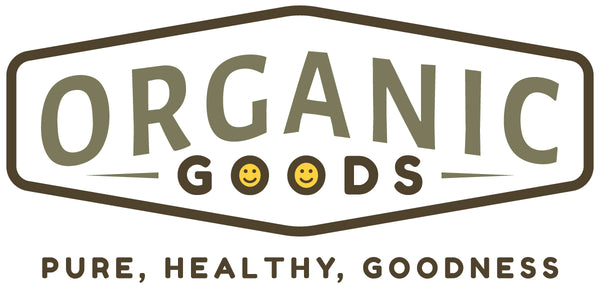
The Organic Advantage: Harnessing the Power of Natural Ingredients for Optimal Wellness
Share
Table of Contents
- Introduction
- Optimising Health and Wellness
- Environmental Sustainability
- Preference for Natural, Additive-Free Products
- Challenges and Opportunities
- The Future of Organic Ingredients
Introduction
As the global emphasis on health and wellness continues to intensify, an increasing number of consumers are seeking out products that are natural and free from synthetic additives. Organic-based ingredients offer a compelling alternative that aligns with this growing trend. The significance of organic ingredients lies in three key areas:
• Their potential to optimise overall health and wellness. • Their environmental sustainability. • Their alignment with consumer preferences for natural, additive-free products.Optimising Health and Wellness
Organic-based ingredients hold immense potential for enhancing health and wellness. They are grown without the use of synthetic pesticides and genetically modified organisms (GMOs), both of which have been linked to numerous health issues. Organic farming practices also promote soil health, which can result in crops that are higher in nutrient content. Organic ingredients, therefore, not only minimise exposure to harmful substances but may also offer superior nutritional benefits.
Environmental Sustainability
The production of organic ingredients is more environmentally sustainable than that of conventional ones. Synthetic pesticides and fertilisers used in conventional farming can contaminate water sources and degrade soil quality. Organic farming, on the other hand, uses practices that enhance soil fertility and biodiversity, contributing to the health of the entire ecosystem. By choosing products with organic ingredients, consumers can contribute to environmental preservation.
Preference for Natural, Additive-Free Products
Consumer preferences have markedly shifted towards natural, additive-free products in recent years. This is fuelled by increasing awareness of the potential health hazards associated with synthetic additives and a desire for transparency in product labelling. Organic ingredients meet these consumer demands, offering a natural alternative that is free from artificial additives and transparently sourced.
Challenges and Opportunities
Despite the numerous benefits, the adoption of organic ingredients is not without challenges. These include higher production costs, stringent certification processes, and limited availability in some regions. However, these challenges also present opportunities for innovation in supply chain management, agricultural practices, and product development. Companies that can successfully navigate these obstacles can position themselves as leaders in the organic market and gain a competitive edge.
The Future of Organic Ingredients
Looking forward, the demand for organic ingredients is expected to continue to rise. This is driven by consumer awareness of the health and environmental benefits, as well as a growing preference for transparent and ethical sourcing practices. Companies that can adapt to these trends and provide products with high-quality organic ingredients will likely enjoy increased consumer loyalty and market success. The future of organic ingredients, therefore, holds great promise for both consumers and businesses alike.
The rise in consumer demand for organic products is not without its challenges, however. One of the key issues is the ability of farms and suppliers to maintain the required levels of production. With more stringent standards for organic certification, these producers must invest heavily in sustainable farming practices, which can, in turn, impact the cost and availability of organic ingredients. This raises a critical question about the feasibility of maintaining consistently high-quality supplies while keeping prices competitive.
In response to these challenges, many companies are forming alliances with local farmers and suppliers, fostering direct relationships to ensure a stable supply chain. These partnerships not only help secure a consistent source of organic ingredients but also support local economies, creating a win-win situation for all parties involved. This collaborative approach is likely to dominate the organic market scenario in the years to come.
Despite the challenges, the organic ingredients industry remains an exciting and rapidly evolving sector. Innovation is at the forefront, with companies consistently exploring new methods to increase yield, improve quality, and develop novel organic products. From leveraging technology in farming practices to harnessing the power of plant genetics, the industry is set to witness groundbreaking changes in the near future.
In conclusion, the organic ingredients market is poised for substantial growth, driven by increasing consumer awareness and demand. While challenges persist in terms of supply chain management and cost-effectiveness, the industry is responding with innovative solutions and collaborations. As we look to a future where sustainability and health are at the forefront of consumer choices, organic ingredients will undoubtedly play an integral role in shaping the global food landscape.
So, what does this mean for the food industry as we know it? It signals a paradigm shift. There is a growing recognition that organic food is not just a luxury for the few but a necessity for all. The demand for organic products is expanding far beyond the traditional markets of North America and Europe and into the rapidly growing economies of Asia and Latin America. This presents an enormous opportunity for businesses willing to invest in organic farming and production. However, this shift is not without its challenges. The organic industry has traditionally faced hurdles in terms of higher production costs, certification hurdles, and difficulties in scaling up. Yet, these obstacles are not insurmountable. With increasing technological advancements in farming, innovative supply chain management, and favorable government policies, the organic sector can overcome these hurdles. Moreover, consumers are willing to pay a premium for organic products, recognizing the longer-term benefits for their health and the environment. This willingness provides a strong incentive for businesses to transition towards more sustainable practices. In conclusion, the rise of organic ingredients in our food is more than just a trend. It's a testament to our evolving understanding of health, sustainability, and responsible consumption. As this shift continues, the businesses that adapt will not only reap financial rewards but also contribute significantly to a healthier planet and populace. The future is organic, and it is high time we embraced this change.
